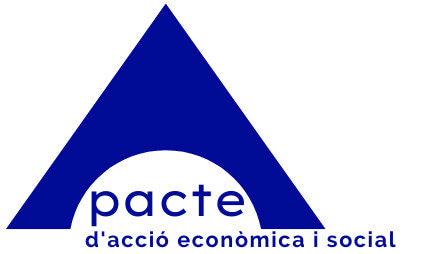- Challenges Mount as Nigeria Confronts Shifting Political Landscapes, breaking news in nigeria today 24/7, and Economic Uncertainties.
- The Shifting Political Alliances
- The Role of Regionalism in National Politics
- Economic Uncertainties and Fiscal Challenges
- The Impact of Inflation on Household Budgets
- Security Concerns and Regional Instability
- The Role of Civil Society and Citizen Engagement
- Navigating the Future: Opportunities and Risks
Challenges Mount as Nigeria Confronts Shifting Political Landscapes, breaking news in nigeria today 24/7, and Economic Uncertainties.
The Nigerian political and economic landscape is currently experiencing a period of significant flux, presenting both considerable challenges and potential opportunities. Recent shifts in governmental policies, coupled with global economic pressures, are creating a complex environment for citizens and businesses alike. This period of uncertainty demands a careful examination of the factors at play, and a proactive approach to navigate the evolving situation. Breaking news in nigeria today 24/7 focuses on these developments, providing in-depth analysis and crucial insights into the unfolding events.
The Shifting Political Alliances
Nigeria's political arena has historically been characterized by dynamic alliances and shifting power structures. Recent events have seen a notable realignment of political forces, with previously staunch allies now finding themselves at odds. This is partially attributable to the approaching elections, which are causing politicians to re-evaluate their positions and seek to solidify their support bases. The formation of new coalitions and the potential fracturing of existing parties are key indicators of this ongoing transformation.
The impact of these political maneuvers extends beyond the immediate election cycle. These changes could influence the trajectory of governmental policies and the implementation of crucial reforms. A more fragmented political landscape may necessitate greater compromise and collaboration, or it could lead to increased gridlock and instability. Understanding these dynamics is essential for businesses and individuals operating within Nigeria.
Furthermore, the rising influence of regional interests and the emergence of new political figures are contributing to the complexity of the situation. These factors highlight the need for a nuanced understanding of Nigeria's political landscape, moving beyond simplistic narratives and acknowledging the diverse range of actors involved.
The Role of Regionalism in National Politics
Regionalism has always played a significant role in Nigerian politics, shaping voting patterns and influencing policy decisions. However, recent trends suggest that regional identities are becoming increasingly salient, potentially exacerbating existing divisions. This is due to a number of factors, including economic disparities between regions, historical grievances, and the perception of unequal access to power and resources. The delicate balance between national unity and regional autonomy is under increasing strain.
Addressing these regional tensions requires a multi-faceted approach that promotes inclusive governance, equitable resource distribution, and genuine dialogue between different groups. Ignoring these underlying issues could lead to further polarization and instability, undermining Nigeria's long-term prospects for peace and prosperity. Fostering a sense of shared national identity, while respecting the diversity of its constituent regions, is crucial for building a more cohesive and resilient nation.
| North-West | Security, Agriculture | Agriculture, Livestock |
| North-East | Insurgency, Poverty | Agriculture (limited) |
| South-West | Infrastructure, Education | Commerce, Finance |
| South-East | Infrastructure, Development | Entrepreneurship, Trade |
| South-South | Resource Control | Oil & Gas, Agriculture |
Economic Uncertainties and Fiscal Challenges
Nigeria's economy faces a multitude of challenges, ranging from fluctuating oil prices to rising inflation and dwindling foreign reserves. The country's heavy reliance on oil revenue makes it particularly vulnerable to external shocks, as demonstrated by the recent downturn in global oil markets. Diversification of the economy is widely acknowledged as a critical priority, but progress has been slow and uneven.
The government's efforts to address these challenges include implementing fiscal reforms, attracting foreign investment, and promoting non-oil exports. However, these initiatives have been hampered by a number of factors, including bureaucratic inefficiencies, corruption, and a lack of infrastructure. Successfully navigating these obstacles requires a sustained commitment to good governance and structural reforms.
Furthermore, the rising debt burden and the increasing cost of servicing that debt are creating significant fiscal pressures. Managing the country's debt profile responsibly and avoiding further accumulation of debt are essential for maintaining macroeconomic stability and ensuring long-term sustainable growth.
The Impact of Inflation on Household Budgets
The recent surge in inflation has had a significant impact on household budgets across Nigeria, particularly for low-income families. Rising prices for essential goods and services, such as food, transport, and energy, are eroding purchasing power and pushing more people into poverty. This is creating hardship and social unrest, and it requires urgent attention from policymakers. Targeted interventions, such as social safety nets and price controls, may be necessary to mitigate the impact of inflation on the most vulnerable segments of the population.
The underlying causes of inflation are complex, including supply chain disruptions, currency depreciation, and expansionary monetary policy. Addressing these issues requires a coordinated approach that involves both fiscal and monetary authorities. Maintaining a stable macroeconomic environment and fostering a conducive investment climate are crucial for controlling inflation and promoting sustainable economic growth.
- Increases in food prices are primarily caused by logistical difficulties and insecurity in agricultural regions.
- Transportation costs are also increasing due to rising fuel prices.
- The devaluation of the Naira has further exacerbated inflationary pressures.
- Government spending increases have also contributed to the growth of inflation.
Security Concerns and Regional Instability
Nigeria continues to grapple with a number of security challenges, including terrorism, banditry, and communal conflicts. The activities of Boko Haram and other extremist groups in the North-East continue to pose a serious threat to regional stability, while banditry along major highways and in rural areas is disrupting economic activity and causing widespread displacement. Addressing these security challenges requires a multi-pronged approach that combines military force with intelligence gathering, community engagement, and socio-economic development.
The porous nature of Nigeria's borders and the proliferation of small arms and light weapons exacerbate these security threats. Strengthening border security and tackling the illicit flow of arms are crucial for stemming the tide of violence. Regional cooperation and intelligence sharing are also essential for addressing transnational security threats.
Furthermore, the underlying drivers of conflict, such as poverty, inequality, and marginalization, need to be addressed in order to achieve lasting peace and security. Investing in education, job creation, and social inclusion are vital for countering the appeal of extremist ideologies and building more resilient communities.
The Role of Civil Society and Citizen Engagement
Civil society organizations and active citizen engagement play a critical role in promoting good governance, accountability, and social justice in Nigeria. These groups provide a voice for marginalized communities, monitor government actions, and advocate for policy changes. Their work is essential for strengthening democratic institutions and fostering a more inclusive and equitable society.
The government's relationship with civil society has often been strained, with restrictions placed on the freedom of assembly and expression. Creating a more enabling environment for civil society organizations to operate freely and independently is crucial for strengthening democracy and promoting sustainable development.
Furthermore, encouraging greater citizen participation in political processes and decision-making is essential for building trust and legitimacy. Empowering citizens to hold their leaders accountable and participate actively in shaping their own future is a key ingredient for long-term stability and prosperity.
- Promoting freedom of speech and assembly
- Protecting journalists and human rights defenders
- Fostering transparency and access to information
- Supporting independent media and investigative journalism
- Encouraging civic education and participation in democratic processes
Navigating the Future: Opportunities and Risks
Despite the numerous challenges facing Nigeria, there are also significant opportunities for growth and development. The country possesses a large and dynamic population, abundant natural resources, and a thriving entrepreneurial spirit. Harnessing these strengths requires a strategic vision, effective leadership, and a commitment to good governance.
Investing in infrastructure, education, and healthcare is critical for unlocking Nigeria's economic potential and improving the quality of life for its citizens. Promoting diversification of the economy, attracting foreign investment, and fostering innovation are also essential for creating a more resilient and sustainable economy.
Successfully navigating the complex political and economic landscape requires a willingness to embrace change, adapt to new realities, and forge strong partnerships both domestically and internationally. By addressing the underlying challenges and seizing the emerging opportunities, Nigeria can pave the way for a brighter future for its citizens.
| Growing youth population | Unemployment | Investment in education and skills development |
| Abundant natural resources | Resource curse | Diversification of the economy |
| Strategic geographic location | Regional instability | Strengthening regional cooperation and security |
| Thriving entrepreneurial sector | Lack of access to finance | Promoting financial inclusion and supporting SMEs |






